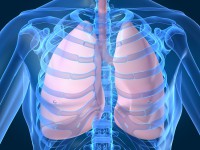
One of the goals of non-toxic cancer treatments at the Issels immuno-oncology center is a reduction of debilitating side effects typically caused by traditional treatments. Unfortunately, side effects are a frequent result of therapy when using chemotherapy and radiation.
Successful management of side effects has benefits for both your physical and mental well-being. Here are three of the more common side effects of traditional cancer treatment along with tips to reduce them.
- Fatigue from radiation and chemotherapy
Not only is cancer treatment energy-sapping on its own, it can sometimes result in anemia, which also causes fatigue. This exhaustion often interferes with normal activities so many patients find it helpful to cut back on work and other obligations. A healthy diet and moderate exercise can also help, but it’s important to get rest when you need it.
- Hair loss from chemotherapy
Hair loss is a well-known side effect of chemotherapy, which destroys rapidly dividing cells like hair roots. The loss is usually temporary, and hair grows back from three to 10 months following the last treatment, but can be permanent in some patients. A variety of options are available based on your personal preference. They include cutting your hair short or covering your head with hats, scarves and wigs.
- Nausea from chemotherapy
Nausea and vomiting that accompanies chemotherapy is usually addressed with medication. Some patients avoid types of food that tend to be irritating, such as greasy or spicy products. Based on a 2004 study, researchers are exploring the possibility that expectations of nausea can be a self-fulfilling prophecy.
Treatment protocols at our immuno-oncology center include non-toxic therapies that minimize harmful side effects. Contact us to learn more about the Issels® personalized programs.





